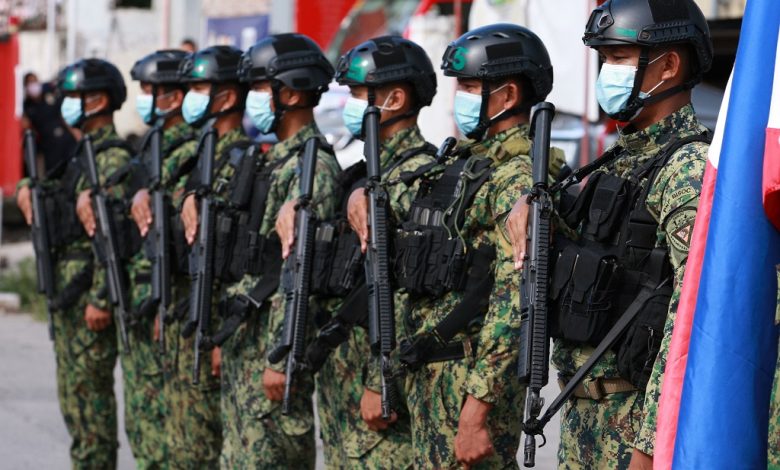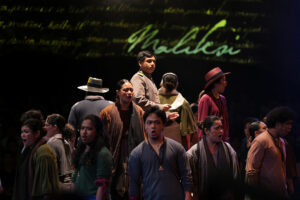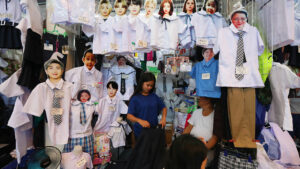The value of explicit statement of core values

It has often been stated by seasoned election law and election reform practitioners and observers that the Commission on Elections (Comelec), the agency mandated to manage and administer our elections, is the most powerful government agency in the country 120 days before and 30 days after the elections. During that period, Comelec has control over the Armed Forces of the Philippines (AFP), the police and security service, and other agencies that Comelec may call on as administrator and manager of the elections. It can, for example, call on the Philippine National Police (PNP) to put an entire province or a city or municipality under Comelec control when the local government unit (LGU) is unable to manage the peace and order situation in a particular locality.
Baguio City Mayor and former PNP official, Benjamin Magalong says when the peace and order situation in an area deteriorates to the point that the LGU officials are themselves involved in violent activities and assassinations, the Comelec calls in the PNP and takes the command and operational control of the police force away from the local officials and may even deputize the AFP to provide additional headcount where more personnel are required. The former PNP general emphasizes that Comelec can “motu propio,” literally “on one’s own initiative,” take control of an area without needing the approval of the President of the Philippines.
Veteran lawyer Romy Macalintal, lead counsel of Vice-President Leni Robredo in the 2016 vice-presidential election protest of Marcos Jr., explains Comelec control of an area as follows: “It means the province or city shall be under (the) control and supervision of the Comelec, including police and military in the area, as in Comelec Resolution 3618 dated Feb. 13, 2001.”
Another election lawyer, Hubert Guevara, states that putting an area under Comelec control means that there is a possibility of a security threat in the area and that the Comelec is therefore allowed to deputize the military to ensure peace and order, aside from the PNP.
The above examples clearly show the important role that the PNP plays in any election. This brings the agency responsible for daily peace and order all over the country, front and center.
We’re reminded of our youth when the Philippine Constabulary’s Metropolitan Command or Metrocom, then headed by General Prospero Olivas, used to chase us and hundreds of other demonstrators along Roxas Boulevard, in front of the US Embassy; along the old Congress building (which now houses the National Museum); Malacanang during the First Quarter Storm; McArthur bridge down to Etagere (now Palanca) and Mendiola, to name a few instances. Then Major Alfredo Lim, who later became a colleague in President Corazon Aquino’s administration, was one of those who doggedly pursued us along those streets, with fire fighters spraying us with canal water. It was a daily cat-and-mouse game, with some of the policemen becoming our friends with whom we shared stories before they obeyed instructions from higher ups to disperse or arrest us. A number of them even showed their yellow undershirts beneath the police uniforms in one demonstration in front of the Welcome Rotunda, to assure us of their true loyalties. “Magka cosa tayo (“we have the same cause”) but we have to carry out orders,” some of them, teary-eyed, would say before bedlam would break out.
We have always looked at our police forces and policemen with some fascination and even compassion. I remember a tutor of my younger brothers coming to our home one day, sobbing uncontrollably in between lessons as she spoke of her policeman-husband then lying in a hospital bed after being wounded in a gun battle with armed criminals. That image of the teacher crying remained imbedded on my mind and became even more vivid as I got to relate with more policemen as I passed on from adolescence to adulthood. Husband and wife were both frontliners serving the people.
Many years later, I found myself at the National Police Commission (Napolcom) office passing judgment, as part of a board, on policemen from as far south as Tawi-Tawi to Batanes, the northernmost tip of the country.
These officers were seeking promotion to the next highest rank. It was during those sessions that I came face-to-face with the aspirations, dreams, and problems of ordinary police officers who, like millions of other Filipinos, just want to have a decent honorable job, send their kids to good schools, enjoy basic comforts, and put food on the table.
Just what does doing a good job mean? Based on the PNP’s official Mission Statement, it is: “To enforce the law, to prevent and control crimes, to maintain peace and order, and to ensure public safety and internal security with the active support of the community.
The police service has as its moral compass or guide for how to live with others, the following core values: Maka-Diyos (God fearing), Maka-tao (Humane), Maka-kalikasan (Environment-friendly), and Maka-bayan (Nationalistic).
Putting together the Mission and Core Values and explicitly stating and repeating them, help define what an organization, and even individuals who have personal mission statements and core values, stands for.
These values serve as beacons or act as some kind of lighthouse which guide seafarers during dark stormy nights in the open seas.
For policemen who are out there in the streets and exposed to all sorts of challenges and temptations, one often has to reflect hard on how one can keep intact one’s core values and the need to survive. One has to always balance one’s own personal and professional interest on the one hand and one’s core values on the other — much like a nation steeped in democracy which is forced to deal, for commercial reasons, with brutal dictators.
These dilemmas occur too often for too many people.
Philip Ella Juico’s areas of interest include the protection and promotion of democracy, free markets, sustainable development, social responsibility and sports as a tool for social development. He obtained his doctorate in business at De La Salle University. Dr. Juico served as secretary of Agrarian Reform during the Corazon C. Aquino administration.




